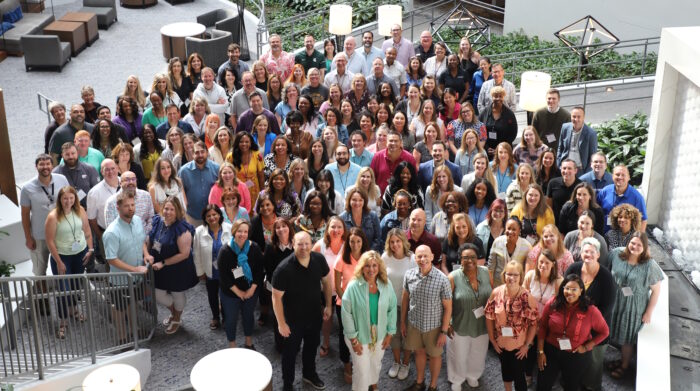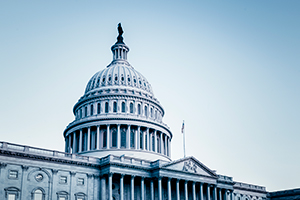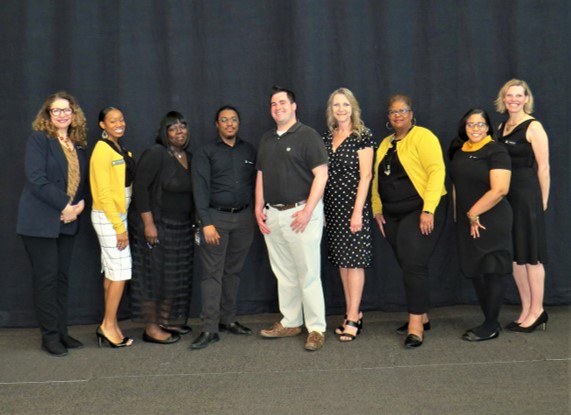by CUPA-HR | June 26, 2023
On June 14, the Biden administration released its Spring 2023 Unified Agenda of Regulatory and Deregulatory Actions (Regulatory Agenda), providing the public with an update on the regulatory and deregulatory activities under development across approximately 67 federal departments, agencies and commissions. This release serves as the first Regulatory Agenda for the 2023 year, setting target dates for regulatory actions in the coming year.
CUPA-HR’s government relations team has completed a thorough review of the Spring 2023 Regulatory Agenda and put together the following list of noteworthy proposed actions for members.
Department of Labor
Wage and Hour Division — Defining and Delimiting the Exemptions for Executive, Administrative, Professional, Outside Sales and Computer Employees
According to the Regulatory Agenda, the Department of Labor (DOL)’s Wage and Hour Division (WHD) has again delayed the Notice of Proposed Rulemaking (NPRM) to address changes to the Fair Labor Standards Act (FLSA)’s overtime pay requirements to August 2023. The WHD first announced their intention to move forward with the NPRM in the Fall 2021 Regulatory Agenda, stating its goal “to update the salary level requirement of the section 13(a)(1) exemption [under the FLSA].”
As a reminder, changes to overtime pay requirements have been implemented through regulations under both the Obama and Trump administrations. In May 2016, the Obama administration’s DOL issued a final rule increasing the salary threshold from $23,660 to $47,476 per year and imposed automatic updates to the threshold every three years. However, court challenges prevented the rule from taking effect, and it was permanently enjoined in September 2017. After the Trump administration started the rulemaking process anew, the DOL issued a new final rule in September 2019 raising the minimum salary level required for exemption from $23,660 annually to $35,568 annually. This final rule went into effect January 1, 2020, and remains in effect today.
Since the regulation’s reintroduction in the Fall 2021 Regulatory Agenda, CUPA-HR has participated in several DOL listening sessions and has sent letters to the DOL expressing concerns with the timing of the rulemaking. In a recent letter, CUPA-HR joined other associations in calling for the Department to postpone or abandon the anticipated overtime rulemaking, citing concerns with supply chain disruptions, workforce shortages, inflation, and shifting workplace dynamics.
Wage and Hour Division — Employee or Independent Contractor Classification Under the Fair Labor Standards Act
In August 2023, the WHD anticipates issuing a final rule to amend the current method for determining independent contractor status for workers.
On October 13, 2022, the DOL published an NPRM to rescind the current method for determining independent contractor status under the FLSA. The current test, finalized by the Trump administration in 2021, has two core factors of control and investment with three additional factors (integration, skill and permanency) that are relevant only if those core factors are in disagreement. The Biden rule proposes a return to a “totality-of-the-circumstances analysis” of multiple factors in an economic reality test, including the following six factors, which are equally weighted with no core provisions:
- the extent to which the work is integral to the employer’s business;
- the worker’s opportunity for profit or loss depending on managerial skill;
- the investments made by the worker and the employer;
- the worker’s use of skill and initiative;
- the permanency of the work relationship; and
- the degree of control exercised or retained by the employer control.
Employment and Training Administration — Strengthening Wage Protections for the Temporary and Permanent Employment of Certain Aliens in the United States
The DOL’s Employment and Training Administration (ETA) has moved the “Strengthening Wage Protections for the Temporary and Permanent Employment of Certain Aliens in the United States” proposed rule to the list of long-term actions to be taken by the agency, anticipating a release of the NPRM in June 2024. According to the listing in the regulatory agenda, the NPRM will seek to establish “a new wage methodology for setting prevailing wage levels for H-1B/H-1B1/E-3 and PERM programs consistent with the requirements of the Immigration and Nationality Act.”
The upcoming NPRM will likely amend the Trump administration’s final rule that was scheduled to take effect on November 14, 2022, but was subsequently vacated by a federal court in June 2021. The new proposal will take into consideration the feedback it received in response to a Request for Information (RFI) on data and methods for determining prevailing wage levels “to ensure fair wages and strengthen protections for foreign and U.S. workers.”
CUPA-HR filed comments in opposition to the Trump administration’s regulations on the issue and in response to the Biden administration’s RFI.
Department of Education
Office for Civil Rights — Nondiscrimination on the Basis of Sex in Education Programs or Activities Receiving Federal Financial Assistance
In October 2023, the Department of Education’s Office for Civil Rights (OCR) plans to release its highly anticipated Title IX final rule. The rulemaking would finalize the June 2022 NPRM to roll back and replace the Trump administration’s 2020 regulations while simultaneously expanding protections against sex-based discrimination to cover sexual orientation, gender identity, and pregnancy or related conditions.
CUPA-HR filed comments in September 2022 in response to the NPRM. In our comments, we brought attention to the possible impact the proposed regulations could have on how higher education institutions address employment discrimination.
On May 26, the Department of Education published a blog post stating that the release of the anticipated Title IX final rule will be delayed until at least October 2023. The final rule was previously targeted in the Fall 2022 Regulatory Agenda for May 2023. The department stated that they need additional time to review the 240,000 comments they received in response to the Title IX proposed rule.
Nondiscrimination on the Basis of Sex in Athletics Education Programs or Activities Receiving Federal Financial Assistance
The Department of Education also plans to release the Title IX final rule for student eligibility in athletic programs in October 2023. The rule would finalize the NPRM that was released by the Department in April 2023.
Under the NPRM, schools that receive federal funding would not be permitted to adopt or apply a “one-size-fits-all” ban on transgender students participating on teams consistent with their gender identity. Instead, the proposal allows schools the flexibility to develop team eligibility criteria that serves important educational objectives, such as fairness in competition and preventing sports-related injuries. The Department further explains that the eligibility criteria must take into account the sport, level of competition, and grade or education level of students participating, and the criteria would have to minimize harm to students whose opportunity to participate on a team consistent with their gender identity would be limited or denied.
The NPRM received over 150,000 comments addressing support for and concerns with the NPRM. Again, the Department must review all comments before issuing a final rule to implement these regulations, which may lead to a further delay.
National Labor Relations Board
Joint Employer
In August 2023, the National Labor Relations Board (NLRB) plans to release its anticipated final rule to amend “the standard for determining whether two employers, as defined under the National Labor Relations Act (NLRA), are a joint employer under the NLRA.”
On September 7, 2022, the NLRB issued an NPRM on the joint employer standard. The NPRM establishes joint employer status of two or more employers if they “share or co-determine those matters governing employees’ essential terms and conditions of employment,” such as wages, benefits and other compensation; work and scheduling; hiring and discharge; discipline; workplace health and safety; supervision; and assignment and work rules. According to the NLRB’s press release, the board “proposes to consider both direct evidence of control and evidence of reserved and/or indirect control over these essential terms and conditions of employment when analyzing joint-employer status.”
Department of Homeland Security
U.S. Immigration and Customs Enforcement — Optional Alternative to the Physical Examination Associated With Employment Eligibility Verification (Form I-9)
According to the Regulatory Agenda, the Department of Homeland Security (DHS) plans to issue a final rule in August 2023 that would finalize the agency’s proposed rule aiming to “revise employment eligibility verification regulations to allow the secretary to authorize alternative document examination procedures in certain circumstances or with respect to certain employers.”
On August 18, 2022, the DHS published its NPRM on optional alternative examination practices for employers when reviewing an individual’s identity and employment authorization documents required by the Form I-9, Employment Eligibility Verification. If finalized, the proposed rulemaking would create a framework under which the secretary of Homeland Security could allow alternative options for verifying those documents, such as reviewing the documents via video, fax, or email rather than directly allowing employers and agents to use such alternative examination options. According to the NPRM, the secretary would be authorized to implement the alternative examination options in a pilot program if they determine such procedures would offer an equivalent level of security, as a temporary measure to address a public health emergency declared by the secretary of Health and Human Services, or a national emergency declared by the president.
CUPA-HR filed comments in response to the DHS NPRM in October 2022. The comments were supportive of the Department moving forward with the NPRM, but cautioned against requiring secondary, in-person review of I-9 documents after virtual inspection and once an employee is in-person on a regular and consistent basis; issuing training for document detection and/or anti-discrimination training that may be offered at a high cost without proper vetting, and requiring institutions to be enrolled in E-Verify to participate in the alternative options.
On a related noted, on May 4, 2023, the U.S. Immigration and Customs Enforcement (ICE) announced it will provide employers with 30 days to reach compliance with in-person Form I-9 requirements after the COVID-19 flexibilities sunset on July 31, 2023. ICE previously introduced temporary flexibilities in response to the COVID-19 pandemic in March 2020, allowing employers to review employees’ identity and employment authorization documents remotely, rather than in person. This virtual inspection was to be followed by a physical examination within three business days after normal operations resumed. With the new final rule set for earliest release in August 2023, employers will likely have to resume traditional Form I-9 examination practices until the new final rule goes into effect.
U.S. Citizenship and Immigration Services — Modernizing H-1B Requirements and Oversight and Providing Flexibility in the F-1 Program
In December 2023, the DHS’s United States Citizenship and Immigration Services (USCIS) plans to release an NPRM to “amend its regulations governing H-1B specialty occupation workers and F-1 students who are the beneficiaries of timely filed H-1B cap-subject petitions.” The NPRM will specifically propose to “revise the regulations relating to ‘employer-employee relationship’ and provide flexibility for start-up entrepreneurs; implement new requirements and guidelines for site visits including in connection with petitions filed by H-1B dependent employers whose basic business information cannot be validated through commercially available data; provide flexibility on the employment start date listed on the petition (in limited circumstances); address ‘cap-gap’ issues; bolster the H-1B registration process to reduce the possibility of misuse and fraud in the H-1B registration system, and clarify the requirement that an amended or new petition be filed where there are material changes, including by streamlining notification requirements relating to certain worksite changes, among other provisions.”
CUPA-HR continues to monitor these regulations and will keep members apprised of any significant updates.
Share This Article:








 Human Resources, Grand Valley State University (Midwest Region)
Human Resources, Grand Valley State University (Midwest Region)
 Miranda Arjona, Rollins College (Southern Region)
Miranda Arjona, Rollins College (Southern Region)